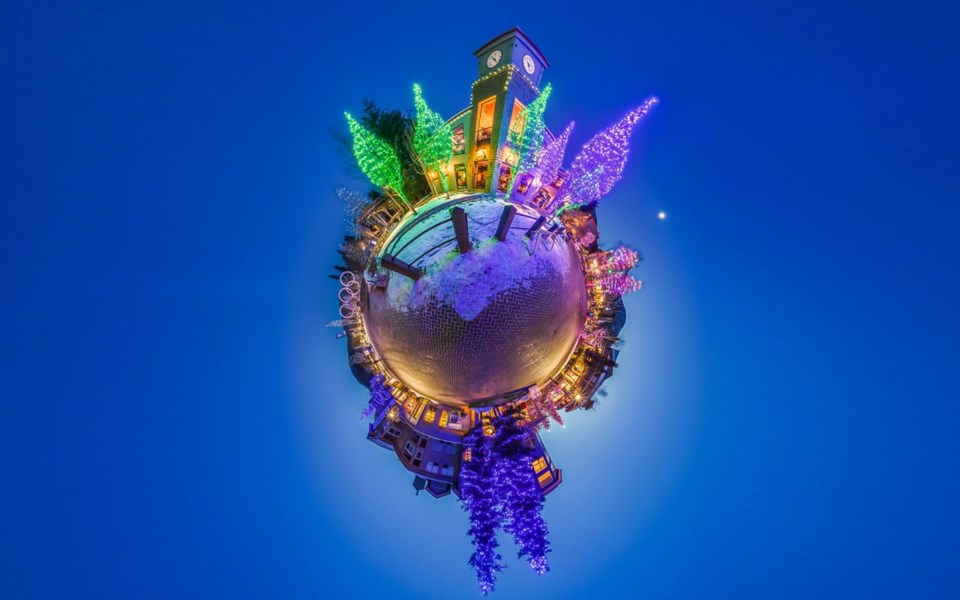Once seen as a niche market, "place-based" cultural tourism has evolved into a significant driver of travel in markets around the world.
Now, thanks to a Whistler company that has invested in the emerging technology of virtual reality (VR), prospective visitors can get a taste of Whistler before they even set foot here.
The brainchild of local photographer Mitch Winton and communications guru Michelle Leroux, Immersive Explorers has worked with several clients since launching in late 2017, including Whistler Blackcomb, Harbour Air, and upcoming projects with Destination BC. They're looking to get in on the ground floor of a burgeoning technology that has made significant in-roads into consumer markets over the past few years. Facebook, in particular, has invested heavily in virtual reality, acquiring Oculus VR for US$2 billion in 2014, before the company had even released its first headset.
"Virtual reality is going to replace your phone," said Winton. "Everyone will have (VR) glasses, and that will be your TV, your computer, your phone—everything. It's not as far away as people think."
Immersive Explorers have focused mainly on travel and adventure activity providers, although they have also completed a campaign for the Oliver Osoyoos Wine Association that gives a virtual tour of the idyllic, 263-hectare Covert Farms Family Estate.
Gene Covert, proprietor and winemaker, sees VR meshing well with the wine industry.
"Yes, we sell wine as a product, but there's the storytelling of the place that goes with, and that's what sets apart my winery from the next one down the road," he said. "We all have our own story to tell and it's quite a unique way to get that across to people and give them that experience."
At the moment, the cost to produce VR content remains prohibitive for some, which is why Immersive Explorers aims to keep costs down for clients.
"It's new technology, so a lot of people are a bit wary and they're not sure. There's also the price conception," Leroux explained. "Because there aren't many creators, it has been really expensive. But the technology is moving such that you can do things more cheaply than you could before. We're trying to keep ourselves quite affordable because of the niche we're working in."
Along with headset-viewed virtual-reality experiences, Immersive Explorers also creates 360-degree video and images that can reach a far wider audience.
For local adventure-tour company The Adventure Group, virtual reality has been an effective way to showcase firsthand the slate of experiences the company offers. A 360-degree video Immersive Explorers produced for the company last summer has been viewed more than 250,000 times.
"We invested in a few Oculus headsets for the full experience, but that's not really the way the majority of people are seeing these videos," said Karen Brooks, marketing manager for The Adventure Group. "They're all on Facebook. We run Facebook campaigns seasonally and we have seen such great engagement with the videos, especially the Superfly Ziplines one for winter and summer.
"This has brought us the closest you can get to telling people what we offer, what kind of views are out there and what kind of experience it is without actually doing it themselves."
To learn more, visit immersiveexplorers.com.




